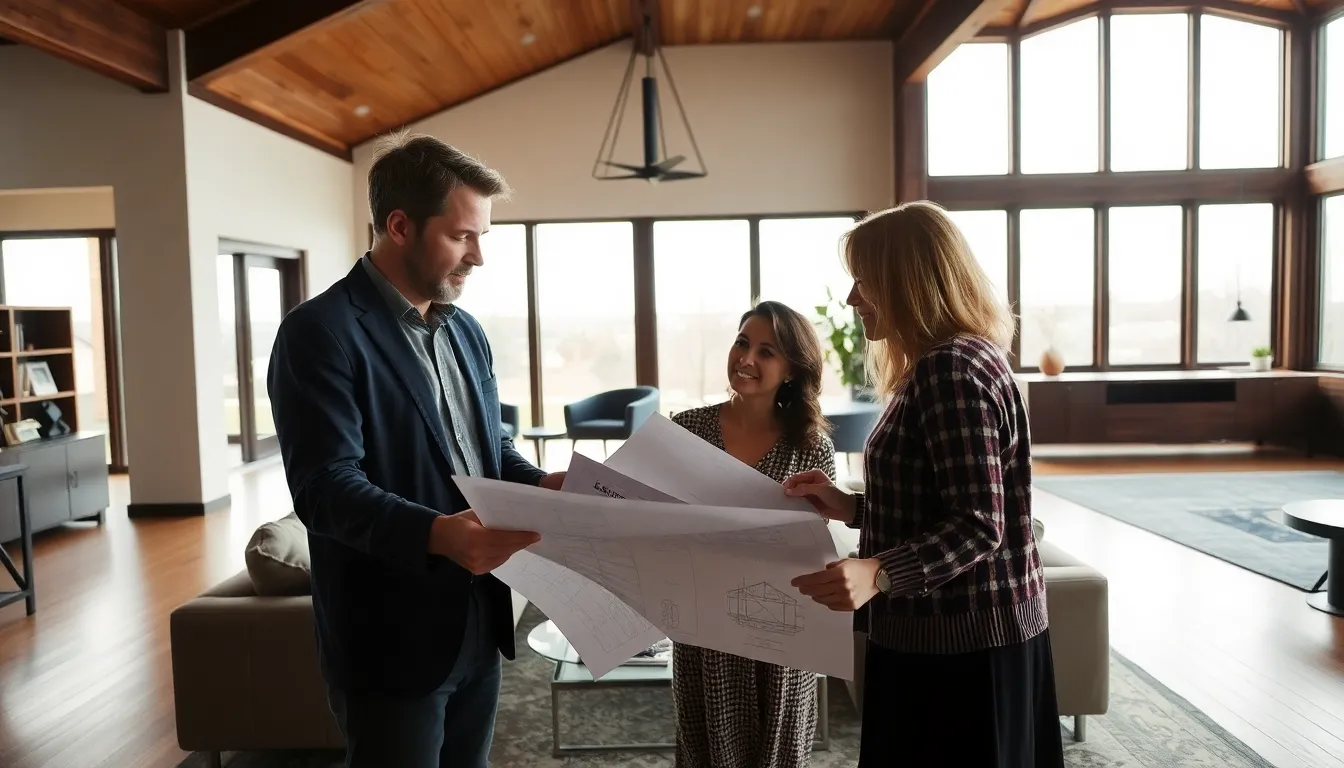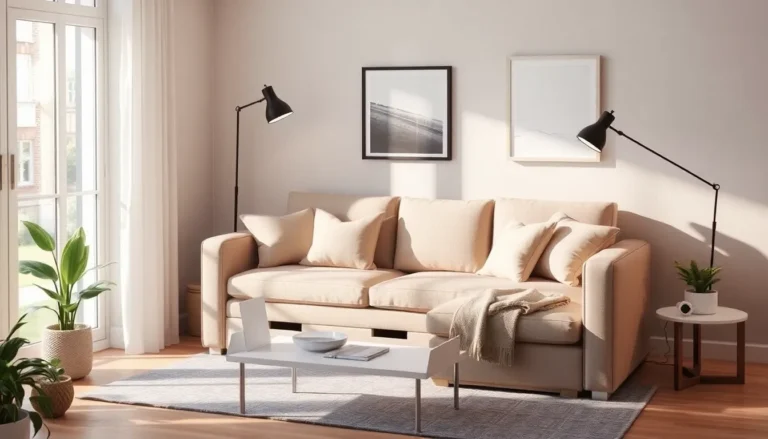Imagine waking up every morning in a home that’s as unique as you are. Custom home design isn’t just about walls and roofs; it’s about creating a space that tells your story. Whether you dream of a cozy nook for reading or a grand kitchen for culinary adventures, the possibilities are endless.
Gone are the days of cookie-cutter houses that look like they popped out of a factory. Today’s homeowners are ready to break the mold and embrace their individuality. Custom design allows for a personal touch that reflects lifestyle and personality. So why settle for ordinary when you can build extraordinary? Let’s dive into the world of custom home design, where creativity meets functionality, and your dream home is just a blueprint away.
Table of Contents
ToggleUnderstanding Custom Home Design
Custom home design involves creating tailored living spaces that reflect personal tastes and lifestyles. This approach allows homeowners to craft environments that truly fit their needs.
Definition and Importance
Custom home design refers to the process of developing unique residential spaces based on individual preferences. It prioritizes functionality alongside aesthetics, ensuring that every element serves a purpose. This approach contrasts with traditional homebuilding, where mass-produced layouts dominate. Personalization fosters a greater sense of ownership and connection to the space, making it not just a house but a true home.
Benefits of Custom Home Design
Several advantages come with custom home design. First, it maximizes space efficiency, allowing for practical layouts that suit daily activities. Next, it facilitates better energy efficiency through personalized choices in materials and appliances. Homeowners often enjoy increased property value, as distinctive designs attract potential buyers. Additionally, incorporating innovative technology enhances modern living experiences. Custom designs cater to specific needs, efficiently addressing lifestyle demands like accessibility and family dynamics.
Key Elements of Custom Home Design

Custom home design encompasses various elements that contribute to a tailored living experience. Understanding these key aspects enhances the ability to create a dream home that meets unique preferences and lifestyle requirements.
Layout and Space Planning
Effective layout and space planning facilitate optimal functionality within a home. Prioritizing flow between rooms enhances daily activities. Design choices can maximize natural light while creating cozy spaces. Homeowners can select open floor plans or segmented layouts, aligning with family dynamics. Specific space requirements, such as accommodating large gatherings or creating quiet retreats, dictate the arrangement. Engaging with a skilled architect or designer ensures that the layout serves the homeowner’s vision and lifestyle goals.
Architectural Styles
Diverse architectural styles offer distinct aesthetics and functionality in custom home design. Contemporary designs emphasize clean lines and energy efficiency, appealing to modern sensibilities. Traditional styles like Colonial or Craftsman evoke classic charm with intricate details. Eclectic blends allow homeowners to mix elements from various styles, reflecting personal taste. Specific design inspirations, such as mid-century modern or rustic farmhouse, contribute unique character. Understanding these styles helps homeowners fine-tune their vision for a cohesive and personalized home.
The Design Process
The design process for a custom home involves several key stages, each essential for translating ideas into tangible results. Homeowners engage deeply with skilled professionals to bring their vision to life.
Initial Consultation
During the initial consultation, homeowners share their vision and lifestyle needs. Experts gather information about preferences, budget constraints, and desired features. This dialogue sets the foundation for personalized designs, creating a roadmap for future discussions. Designers often present portfolio samples to inspire and refine ideas. This collaborative exchange helps ensure alignment between homeowner goals and design objectives.
Concept Development
After the consultation, concept development begins. Designers craft floor plans and sketches based on gathered insights. This phase fosters creativity, pushing boundaries while adhering to practical requirements. Feedback loops prove vital; homeowners review and refine initial concepts. Options for layout styles and architectural elements are explored, ensuring selections align with individual tastes. A focus on functionality remains paramount, addressing specific needs like family dynamics and lifestyle preferences.
Finalizing Plans
Finalizing plans marks a crucial step in the design journey. Designers incorporate feedback into detailed blueprints that outline every aspect of the home. Structural, electrical, and plumbing elements receive careful attention, ensuring comprehensive planning. Homeowners approve revisions before moving forward, creating consensus and clarity. Once finalized, the plans serve as the foundation for construction, transforming unique visions into reality.
Choosing the Right Professionals
Selecting the right professionals is critical for a successful custom home design. This choice influences the overall vision and execution of the project.
Architects vs. Designers
Architects focus on the structural elements and technical functionality of a home. They ensure that all designs comply with local building codes and safety regulations. Designers, on the other hand, emphasize aesthetics and interior layouts. They create harmonious spaces that reflect individual style while maximizing usability. Homeowners often benefit from engaging both architects and designers, integrating their unique skill sets for a comprehensive approach. Each professional contributes distinct expertise, ensuring that both form and function meet personal needs.
Importance of a Builder
Choosing a reliable builder is essential in the custom home design journey. Builders manage the construction process, coordinating various trades and ensuring timely progress. They translate plans into reality, implementing materials and techniques that match design specifications. Expert builders offer valuable insight into budgetary considerations, material choices, and construction timelines. Trusting an experienced builder enhances project efficiency and mitigates potential issues during construction. Selecting the right builder ensures high-quality workmanship that aligns with the homeowner’s vision.
Custom home design offers a unique opportunity for homeowners to create spaces that truly reflect their identities and lifestyles. By prioritizing individuality and functionality, these designs transform houses into cherished homes. Engaging with skilled professionals ensures that every aspect of the design aligns with personal preferences and practical needs.
As homeowners embark on this creative journey, they’ll find that the process not only enhances their living environment but also increases property value and efficiency. Ultimately, custom home design is about making a dream home a reality while embracing personal style and innovative solutions.




